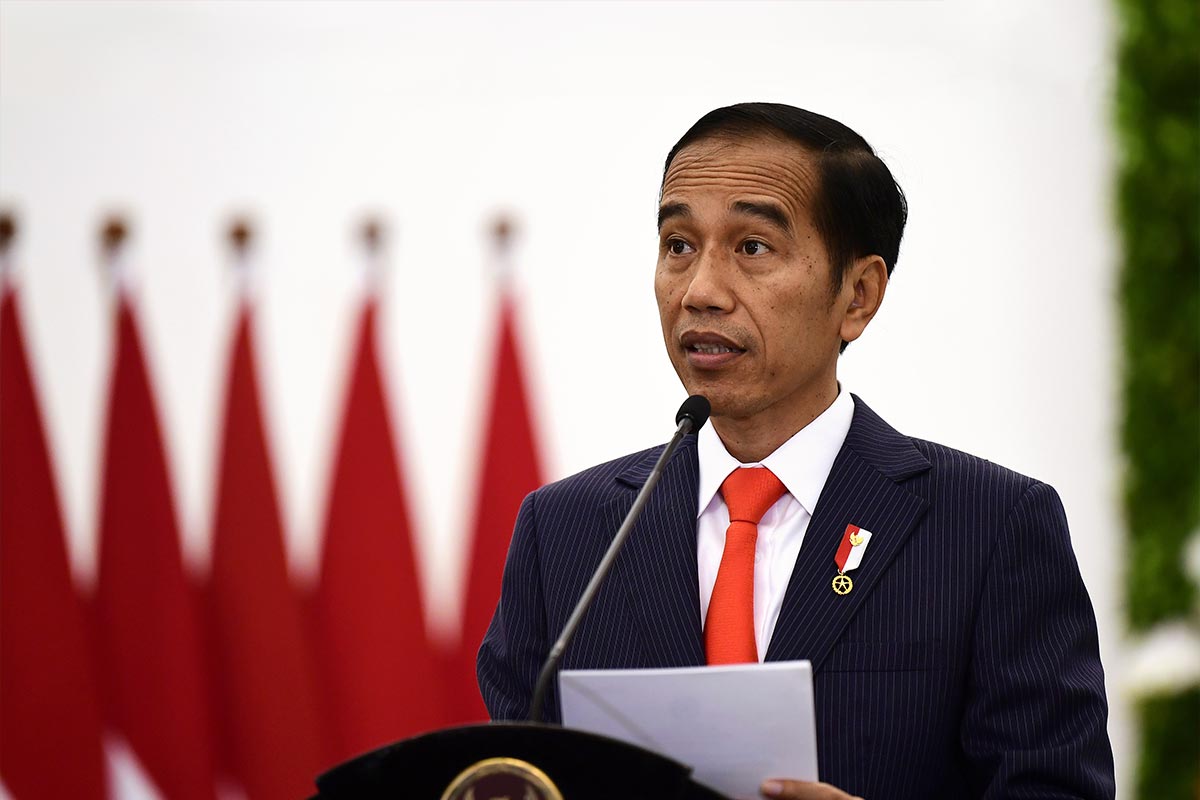What’s the safe level of public debt for Indonesia?
That’s the debate raging in the country as politicians ratchet up the tension ahead of campaigning for next year’s presidential election.
The currency’s selloff to levels not seen since the 1997-98 Asian financial crisis is only intensifying the political wrangling as President Joko Widodo’s (Jokowi) opponents blame his debt-binge for the rout. The government says its debt level of 29 percent of gross domestic product (GDP) is safe and lower than that of peers such as Malaysia and Thailand, but the message is making little difference to voters worried about joblessness and rising borrowing.
“The debt issue has been popular at the grass roots and even in small coffee shops people now talk about the government debt,” said Bhima Yudhistira, an economist at the Institute for Development of Economics and Finance in Jakarta. “Issues on debt and jobs are more popular compared to the economic growth issue, because not all people understand what is economic growth all about.”
Public debt has risen 40 percent to US$295 billion from about US$210 billion when Widodo, known as Jokowi, took power in 2014, official data shows. The government took on debt as the main source for funding its ambitious US$350 billion infrastructure program.
However, as a proportion of its US$1 trillion economy, Indonesia’s gross government debt is well below Malaysia’s 54 percent and Thailand’s 42 percent, International Monetary Fund (IMF) data show. Political parties are cherry-picking data by focusing on absolute numbers to back up their narrative and to woo voters, Yudhistira said.
Foreign debt
For investors, the worry isn’t so much about the nation’s total debt as the relatively high exposure to foreign borrowing, making the economy vulnerable to global contagion. Official data shows 40 percent of public debt last year was foreign-owned.
Alongside a current-account deficit of three percent of GDP, Indonesia’s foreign liabilities have made it among the most exposed in Asia to the selloff in emerging markets this year. The rupiah has slumped almost nine percent against the US dollar this year and neared 15,000 to the US dollar this week.
The looming election adds another dimension of concern. With campaigning for the presidential election starting in less than three weeks, the opposition led by former military general Prabowo Subianto is citing the ballooning debt as a sign of economic mismanagement by Jokowi.
Ramson Siagian, a lawmaker from Subianto’s Gerindra party, says Jokowi added about 1.1 trillion rupiah daily to the nation’s debt since he came to power.
“The government is also not transparent about the amount of new government bonds issued just to repay the old matured bonds,” Siagian said. “This is dangerous because the government just tries to close the old holes by digging new ones. This big burden will be carried over to the next administrations.”
Finance Minister Sri Mulyani Indrawati is defending the government’s record, a task that’s becoming increasingly difficult in an environment where rumours spread quickly on social media. The minister asked her officials last week to counter the out-of-context narratives from the opposition with short, easy-to-digest posts that appeal to millennials, about 90 million of whom will vote in the elections on 17 April.
Indrawati was targeted by a social media hoax last month citing the minister as suggesting the government would sell the tourist island of Bali to clear the nation’s debt. She threatened legal action and appealed to people not to “believe in such slanderous and false news.”
Deficit cap
Muhamad Chatib Basri, a former finance minister, doesn’t view Indonesia’s debt as worrying but sees it as “still under-leveraged” because of a three percent legal cap on the budget deficit. There are risks though from contingent liabilities emerging out of rising debt of state-owned enterprises, he said.
“Indonesia didn’t collapse even when its debt-to-GDP ratio reached 108 percent in 1999 after the Asian financial crisis, let alone when the ratio is 29 percent today,” Basri added.
For Jokowi, who is seeking to secure a second term in office in the world’s fourth most-populous nation, the political environment will become tense as the election nears.
“Aside from the debt level, other issues that are prone to such attacks include ones related to the weakening of the rupiah, foreign workers, foreign investment or partnership with China,” said Fithra Faisal Hastiadi, an economist at the University of Indonesia. “Everything can be attacked and manipulated because everything is highly political these days.” - Bloomberg
